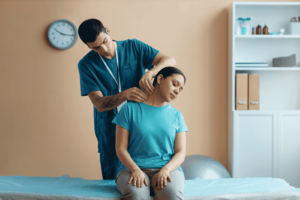Veterinarians are exposed to various hazardous situations that leave them vulnerable to injuries and sickness. Work-related injuries are common among vets, so you should consider purchasing insurance premiums. Even studying veterinarians can be exposed to dangerous situations during apprenticeships. There are many benefits of disability insurance for soon to be veterinarians. Here’s an overview of the common sicknesses and injuries in the veterinary field:
1. Animal-Inflicted Injuries
Veterinarians deal with sick and injured animals that tend to be more anxious and aggressive. You can suffer bites, scratches, kicks, stamps, and crashing injuries when dealing with animals. A bull may back into a gate that swings to hit you. Stopping a horse can result in your foot being stamped on. Even small pets can cause severe scratches and bites. Not all animals are violent, but veterinarians are often exposed to animal-inflicted injuries.
2. Viral and Bacterial Infections
Veterinarians are exposed to the same viruses, bacteria, and pathogens carried by the animals they treat. Some illnesses spread by animals can cause serious infections in humans. Vets must maintain high hygiene standards to cut off the most common transmission route (hand-to-mouth). Exposure to dirt, cold, and other hazardous conditions can leave veterinarians vulnerable to different ailments, infections, and pathogenic microbes.
3. Falls, Slips, and Broken Bones
As a veterinarian, you may find yourself chasing down a rogue animal or working in slippery conditions. You’re still vulnerable to slipping and falling even with the best shoes and work gear. According to studies of vets in Nigeria, slips and falls account for up to 25% of veterinarian injuries. You are likely to slip or fall at some point during your career.
New vets have a higher risk of slipping due to inexperience, so don’t ignore the disability insurance for soon-to-be veterinarians.
4. Back, Joint, and Muscle Injuries
Being a vet may involve lifting animals, pet food, and other heavy weights. Lifting live animals that can twist and squirm requires experience and proper techniques.
You can hurt your back or twist a muscle or ligament. Running after animals and trying to contain an aggressive pet may force you into awkward positions. Muscle injuries are among the most common when dealing with animals. You may suffer exhaustion and fatigue. These issues are often minor but can lead to long-term issues.
5. Needlestick and Sharp Injuries
Veterinarians deal with needles more often than you’d expect. Animals need vaccination, sedation, and drug injections because oral medications are harder to administer. Needlestick injuries are wounds and injuries that result from being punctured by needle equipment, such as a hypodermic syringe. The injury can happen when using, disassembling, or disposing of needles. You may be exposed to pathogens on the needle.
6. Exposure to Hazardous Chemicals
Veterinarians are often exposed to hazardous chemicals, drugs, medication, and pesticides. Animals recovering from surgery may give off some of the isoflurane and sevoflurane gases while breathing. You’ll likely experience dizziness and concentration lapses as the worst side effects. Continued exposure to hazardous chemicals can result in reproductive problems and damage the liver and other internal organs.
7. Headache and Fatigue
Handling sick and injured animals can take a toll on your health. You’re bound to become fatigued if you have a tight schedule, including weekend and after-hour calls. Exposure to animal waste, odor, chemicals, and sprays can increase the likelihood of a headache. Fatigue is expected, given the physical nature of veterinary services. Regular workouts and unwinding can help relieve stress. You can schedule off days to allow your body to recover.
8. Other Common Injuries and Sicknesses
Veterinarians can suffer various other injuries and sicknesses, including allergies, acute gastrointestinal infections, chemical hazards, tetanus, rabies, and more. Some vets report injuries from violence, including robberies and personal assaults by friends, relatives, and staff members. Being a veterinarian involves commuting from one place to another. You may have to visit several locations on the same day, which increases the risk of road accidents.
Disability Insurance for Soon to Be Veterinarians
As a veterinarian, you’re likely to get injured when on the job. Animals can kick, bite, scratch, and stamp. Others carry dangerous pathogens that can keep you ill for weeks. The working conditions leave you vulnerable to slips and falls.
New vets have an increased risk of getting sick or injured. Purchasing disability insurance for soon to be veterinarians can help you cover your earnings for days when you’re ill or injured. You can get temporary disability coverage to pay more than half your wages until you can resume work. Leading carriers offer permanent disability coverage and unique add-ons.





Be First to Comment